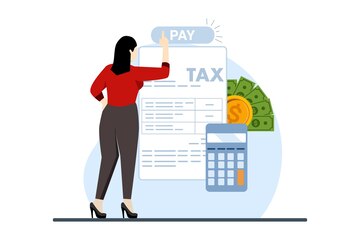The influencer industry is booming, attracting individuals from all walks of life. However, one crucial question remains: do influencers need to pay taxes, and if so, how does it work?
Whether you’ve intentionally built a social media empire or stumbled into influencing by chance, understanding your tax obligations is essential. Let’s explore the ins and outs of influencer taxes, from recognizing when your hobby becomes a business to navigating gifted items and expenses.
What is an Influencer?
An influencer is someone who has the ability to sway their audience’s purchasing decisions through authority, knowledge, or content. Influencers typically specialize in niches such as fashion, food, fitness, or beauty and are categorized based on their audience size:
-
Mega Influencers: Over a million followers
-
Macro Influencers: Between 100K and 1M followers
-
Micro Influencers: Between 10K and 100K followers
-
Nano Influencers: Fewer than 10K followers
If you’re a nano or micro-influencer, you might wonder whether your activities qualify as a hobby or a business. Let’s find out.
Hobby or Business? How to Determine Your Influencer Status
The line between hobby and business can blur in the influencer world. Here are key indicators:
You’re Likely Operating as a Hobby if You:
- Occasionally accept free products or experiences in exchange for posts.
- Receive small, irregular payments (e.g., £50 for a one-off promotion).
You’re Likely Trading as a Business if You:
-
Have a structured plan to grow your audience.
-
Regularly work with paying clients or brands.
-
Earn income exceeding the annual tax-free trading allowance.
If influencing becomes a consistent source of income, you must notify HMRC. Even if you remain within the trading allowance, it’s advisable to declare earnings to ensure compliance.
How Influencers Generate Income
Influencers earn income through various streams. Understanding these income sources can help you manage your tax responsibilities:
- Content Views and Creator Funds: Platforms like TikTok and YouTube pay eligible creators based on content engagement.
- Affiliate Marketing: Promote products using unique links to earn commission on sales.
- Paid Partnerships: Brands pay you to endorse their products or services.
- Gifted Items or Experiences: Companies provide free products or services for promotion.
Be mindful of advertising regulations, such as disclosing sponsored posts and gifted items to maintain transparency.
Registering as an Influencer with HMRC
If you earn over the trading allowance, you’ll need to register your influencer activities with HMRC. The next step is choosing the right business structure:
1. Sole Trader
- Operate under your name, and your income is taxed as personal earnings.
- You’ll pay Income Tax and National Insurance Contributions (NICs) on profits.
- Simple to set up and ideal for solo influencers.
2. Limited Company
-
A separate legal entity that offers liability protection.
-
Pay Corporation Tax on profits and submit annual company accounts.
-
Better suited for influencers earning higher income or hiring a team.
Do Influencers Pay Tax on Gifted Items?
Yes, influencers must account for the value of gifted items as taxable income. HMRC classifies these as Payments in Kind (PIK), which are calculated based on the item’s cash value.
Even if influencing is a hobby, receiving gifts from brands in exchange for promotions could classify your activity as trading. Make sure to include these items in your tax calculations to avoid penalties.
Claiming Expenses as an Influencer
Influencers incur various business expenses, many of which are tax-deductible. Common examples include:
-
Equipment: Cameras, lighting, and microphones.
-
Phone and Internet Bills: Essential for content creation and communication.
-
Content Production: Costs for non-gifted products reviewed in your posts.
These expenses reduce your taxable profit, ensuring you pay less tax. Keep detailed records of receipts and invoices to back up your claims.
Tax Tips for Influencers
- Track Your Income and Gifts: Use spreadsheets or accounting software to log payments, gifted items, and expenses.
- Register with HMRC Early: Avoid penalties by registering as soon as you earn over the trading allowance.
- Understand Your Tax Bracket: Knowing your income level helps you anticipate tax liabilities.
- Seek Professional Help: Accountants or tax advisors specializing in influencer businesses can save you time and money.
Final Thoughts
Tax responsibilities are an inevitable part of being an influencer. Whether you’re just starting out or have a well-established following, staying informed about tax rules ensures you remain compliant while maximizing your profits.
If you’re unsure where to start, seek professional advice to simplify the process and keep your focus on growing your brand.
If you are looking for an accountant to help you with your queries related to your business accounts, Call at 020 35765107 or send a message to book a free consultation. Learn more about our online accounting services and pricing.




